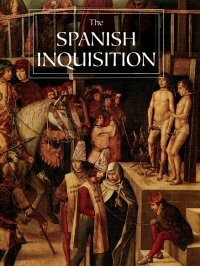
GUARDIAN: In the first of the memos, dated 1 August 2002, the justice department gave the go-ahead to John Rizzo, then acting general counsel to the CIA, for operatives to move to the “increased pressure phase” in interrogating an al-Qaida suspect. Ten techniques are approved, listed as: attention grasp, walling (in which the suspect could be pushed into a wall), a facial hold, a facial slap, cramped confinement, wall standing, sleep deprivation, insects placed in a confinement box (the suspect had a fear of insects) and the waterboard. In the latter, “the individual is bound securely to an inclined bench, which is approximately four feet by seven feet. The individual’s feet are generally elevated. A cloth is placed over the forehead and eyes. Water is then applied to the cloth in a controlled manner……..produces the perception of ‘suffocation and incipient panic’.” ‘Walling’ involved use of a plastic neck collar to slam suspects into a specially-built wall that the CIA said made the impact sound worse than it actually was. MORE
 RELATED: Cándido Conde-Pumpido, the attorney general [of Spain], said at a breakfast meeting with journalists in Madrid that he would oppose any legal action in Spain because the proper forum would be an American court and that any investigation should focus on those who actually mistreated detainees. But in Spain, the attorney general does not have the last word; an investigating judge decides whether a case will proceed. Lawyers familiar with the case said that the stage had now apparently been set for a struggle between judges and politicians.
RELATED: Cándido Conde-Pumpido, the attorney general [of Spain], said at a breakfast meeting with journalists in Madrid that he would oppose any legal action in Spain because the proper forum would be an American court and that any investigation should focus on those who actually mistreated detainees. But in Spain, the attorney general does not have the last word; an investigating judge decides whether a case will proceed. Lawyers familiar with the case said that the stage had now apparently been set for a struggle between judges and politicians.
The judge handling the complaint against the Americans is Baltasar Garzón, the crusading magistrate who ordered the arrest of the former Chilean dictator Augusto Pinochet. In the past, Mr. Garzón has ignored opinions by politicians and law enforcement officials. But with Spain’s government eager to improve its formerly tense relations with Washington, lawyers familiar with the case said there was evidently political pressure to dismiss it. The attorney general’s public intervention was unexpected and unusual, particularly because he appeared to overrule prosecutors at the Madrid court that was dealing with the complaint. MORE
